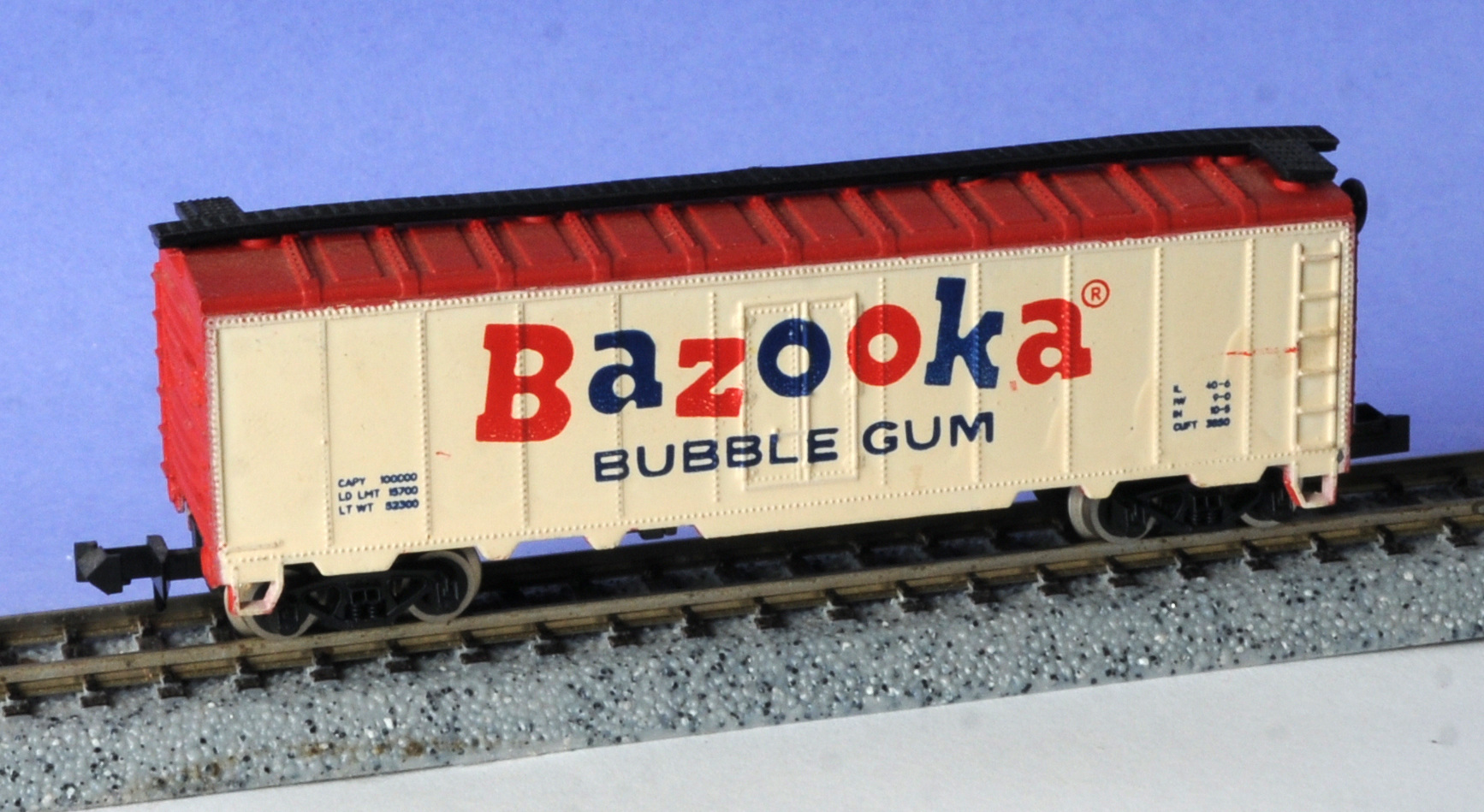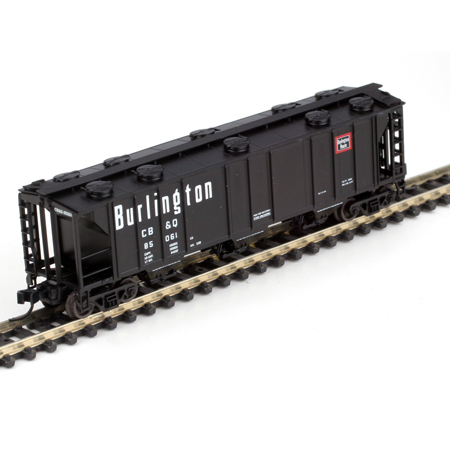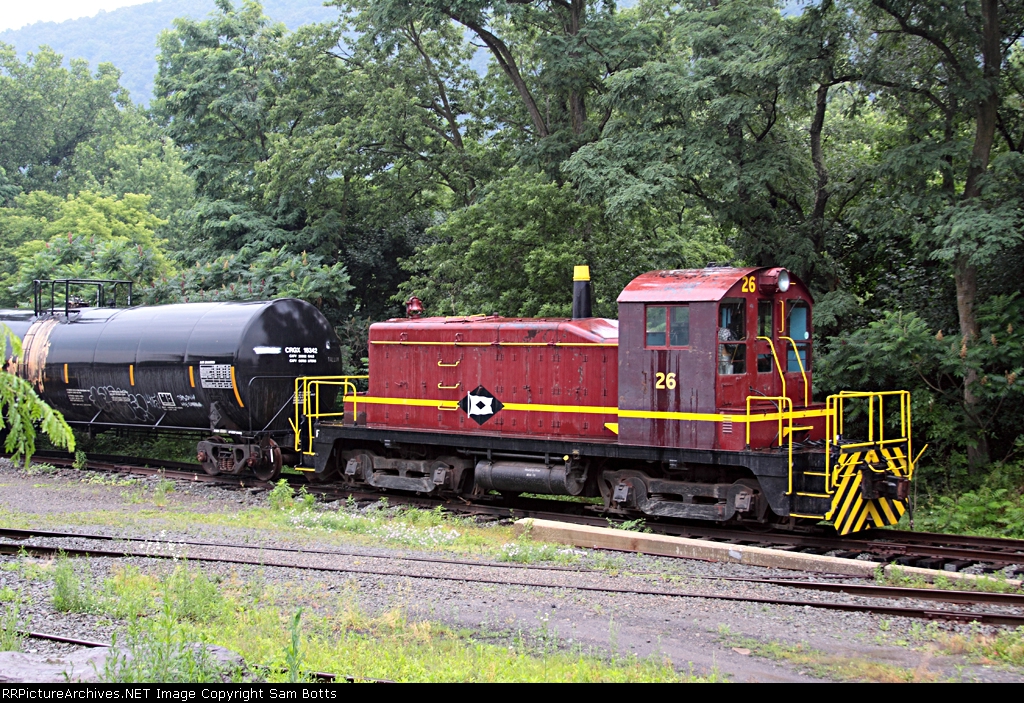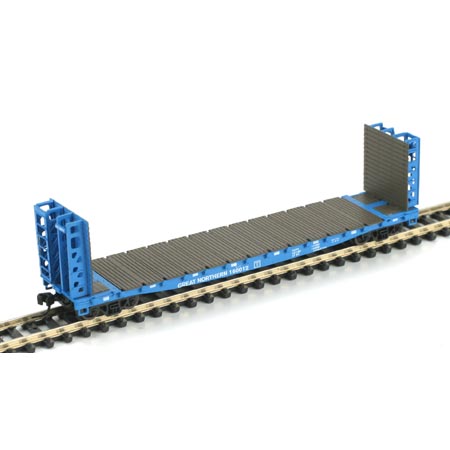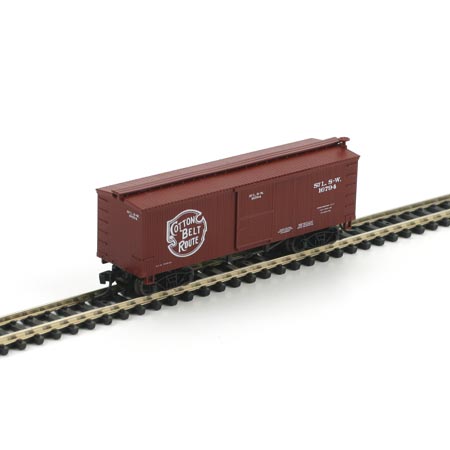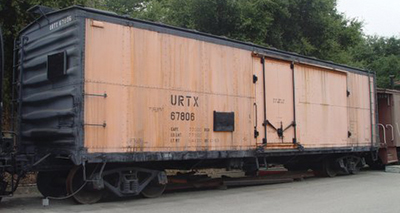Specific Item Information: Car underside reads "Made In Yugoslavia"
Model Information: Mehano first started producing this model in the early 1970's for MRC. It is clearly a knock-off of the Roco 40 foot steel reefer of the same time period. Even the under-frames are close to identical! The only simple way to tell the difference between the Roco and Mehano versions are whether they say "Yugoslavia" or "Austria" on the underframe. I am unsure whether the tooling was licensed by Mehano or 'stolen'. The Mehano version was also imported by AHM and Model Power. Later, the tooling became lost or damaged (due to the civil war in Yugoslavia) and Mehano redid the model to carry a more conventional plug door. The new version was imported only by Life-Like.
Prototype History: A refrigerator car (or “reefer”) is a refrigerated boxcar (US) or van (UIC), a piece of railroad rolling stock designed to carry perishable freight at specific temperatures. Refrigerator cars differ from simple insulated boxcars and ventilated boxcars (commonly used for transporting fruit), neither of which are fitted with cooling apparatus. Reefers can be ice-cooled, come equipped with any one of a variety of mechanical refrigeration systems, or utilize carbon dioxide (either as dry ice, or in liquid form) as a cooling agent. Milk cars (and other types of “express” reefers) may or may not include a cooling system, but are equipped with high-speed trucks and other modifications that allow them to travel with passenger trains.
By the 1940's, new reefers were being built entirely of steel. Insulating techniques improved to the point where economical refrigeration could be accomplished using steel side plates in place of wood sheathing. Cars with steel roofs and sides were more durable and required fewer repairs.
The General American Transportation Corporation built several 40' steel reefer for the Union Refrigerator Transit Line (URTX) from the late 1940's into the 1950's.
This reefer was 40' long & weighted 61,500 lbs. The car is a steel bodied reefer with iced bunkers at each end. These ice bunkers hold 10,400 lbs. of chunk ice or 11,500 lbs. of crushed ice. Ice stations were located every 100-150 miles along the railroads main line to replace the melted ice. In the winter, charcoal heaters could be placed in the bunkers to keep the cargo from freezing. Fans are located in the floor at each end to circulate air and keep an even temperature throughout the car. Typical cargo would be fresh fruit, vegetables or eggs.
American Car & Foundry (ACF Industries) also built 40' reefer for several companies.
By the 1940's, new reefers were being built entirely of steel. Insulating techniques improved to the point where economical refrigeration could be accomplished using steel side plates in place of wood sheathing. Cars with steel roofs and sides were more durable and required fewer repairs.
The General American Transportation Corporation built several 40' steel reefer for the Union Refrigerator Transit Line (URTX) from the late 1940's into the 1950's.
This reefer was 40' long & weighted 61,500 lbs. The car is a steel bodied reefer with iced bunkers at each end. These ice bunkers hold 10,400 lbs. of chunk ice or 11,500 lbs. of crushed ice. Ice stations were located every 100-150 miles along the railroads main line to replace the melted ice. In the winter, charcoal heaters could be placed in the bunkers to keep the cargo from freezing. Fans are located in the floor at each end to circulate air and keep an even temperature throughout the car. Typical cargo would be fresh fruit, vegetables or eggs.
American Car & Foundry (ACF Industries) also built 40' reefer for several companies.
Road Name History: Bazooka Candy Brands manufactures and markets the popular lollipop brands Ring Pop®, Push Pop®, Baby Bottle Pop®, Juicy Drop® and other candy and gum products, including the iconic Bazooka® Bubble Gum.
Bazooka Candy Brands is a division of The Bazooka Companies, Inc., an international marketer of confections products. The Bazooka Companies was originally founded as Topps Chewing Gum, and in its early years produced a popular penny “Topps Gum” from a factory in Brooklyn, N.Y. After World War II, the company developed Bazooka Bubble Gum, and in 1950, added trading cards to its product line.
The Bazooka Companies was acquired in October 2007 by Madison Dearborn Partners, a private equity group, and Michael Eisner, former CEO of Disney, and is headquartered in New York City.
Read more on Wikipedia
Bazooka Candy Brands is a division of The Bazooka Companies, Inc., an international marketer of confections products. The Bazooka Companies was originally founded as Topps Chewing Gum, and in its early years produced a popular penny “Topps Gum” from a factory in Brooklyn, N.Y. After World War II, the company developed Bazooka Bubble Gum, and in 1950, added trading cards to its product line.
The Bazooka Companies was acquired in October 2007 by Madison Dearborn Partners, a private equity group, and Michael Eisner, former CEO of Disney, and is headquartered in New York City.
Read more on Wikipedia
Brand/Importer Information: Founded in the late 1960's by Michael Tager, the 3rd generation business specializes in quality hobby products serving the toy and hobby markets worldwide. During its 50 years of operation, Model Power has developed a full line of model railroading products, die-cast metal aircraft, and die-cast metal cars and trucks.
In early 2014, Model Power ceased its business operations. Its extensive portfolio of intellectual property and physical assets are now exclusively produced, marketed, sold, and distributed by MRC (Model Power, MetalTrain and Mantua) and by Daron (Postage Stamp Airplanes and Airliner Collection).
In early 2014, Model Power ceased its business operations. Its extensive portfolio of intellectual property and physical assets are now exclusively produced, marketed, sold, and distributed by MRC (Model Power, MetalTrain and Mantua) and by Daron (Postage Stamp Airplanes and Airliner Collection).
Manufacturer Information: Mehano is a Slovenian toy manufacturer located in Izola, Slovenija. The company was founded as Mehanotehnika and was producing toys starting in June 1953. They first exhibited at the Nuerenberg Toy Fair in 1959. Mehano produced a number of different locomotives and rolling stock models for the North American market in the 1960s and 1970s. Companies such as Atlas and Life-Like imported a huge variety of their products. Generally they can easily be recognized as they are stamped "Yugosolavia" on the underframe. The company was formally renamed "Mehano" in 1990. Izola today is part of the country of Slovenia since the breakup of Yugoslavia.
Mehano filed for bankruptcy in 2008, but still continued to exist and operate. Since 2012, Mehano products are distributed by Lemke.
Mehano filed for bankruptcy in 2008, but still continued to exist and operate. Since 2012, Mehano products are distributed by Lemke.
Item created by: RoadRailer on 2017-02-09 19:28:02. Last edited by gdm on 2021-02-07 16:53:35
If you see errors or missing data in this entry, please feel free to log in and edit it. Anyone with a Gmail account can log in instantly.
If you see errors or missing data in this entry, please feel free to log in and edit it. Anyone with a Gmail account can log in instantly.


